- Home
- Shirlee McCoy
Sweet Surprises Page 11
Sweet Surprises Read online
Page 11
She shoved the phone into her apron pocket and raked her hand through her hair. “Sorry about that.”
“Who’s Jeff?” he asked, and she frowned.
“No one important.”
“If he’s not important, why has he called you four times?”
“Because he knows my ex and he wants to get in touch with him.”
“That explains nothing, red.”
“Did I imply I planned to explain?” She tossed the words over her shoulder as she walked out of the alley.
“You didn’t imply you weren’t going to.”
She stopped short and turned, her face a pale oval in the darkness. She’d been thin as a kid, tall and gangly compared to her peers. Now she looked gaunt. Surprising, because she’d been working in a chocolate shop for nearly a week.
“I know that in a town this size, everything is everyone’s business,” she said quietly, “but that doesn’t mean I want everyone knowing I have a guy named Jeff calling me several times a day. I’d appreciate it if you kept that to yourself.”
“I’m too busy to spread gossip. Even if I weren’t, it’s not my style.”
“Sorry; that probably sounded rude.” She crossed the lot and yanked at the door, breathing a sigh of relief when it opened. “Thank God for small miracles. I forgot to bring the key. We could have both been locked out. Which would have meant finding Granddad and telling him.”
“Finding Byron might not be a bad idea.” He untied his apron and hung it from a hook near the back door. “He’s probably getting Belinda into all kinds of trouble.”
“How much trouble can they get into at church?” She pulled ingredients from the pantry, set them on the counter. Unless he missed his guess, she was going to dive into another battle with chocolate.
A useless endeavor unless it was something she really wanted to do. Based on the tension in her shoulders and the expression on her face, he’d say it wasn’t.
“Enough that we should probably check on them.”
“We?” she asked as he tugged at her apron strings.
“I wouldn’t want to face Byron alone,” he replied as she batted at his hands and tried to keep the apron in place.
“Seriously, River, I’m not going.” She pulled away, the apron sliding off her hips and falling onto the floor in a puddle of white cotton. “I have a million things to do here.”
“Like?”
“Chocolate. Fudge. More chocolate. And I might attempt the marshmallows again.”
“I’m not sure the stove or the pan can take that,” he said, and she offered a tired smile.
“You could be right, but like you said, Byron is leaving Monday. I’ll have to run this place mostly on my own, and that means I have to learn how to make all this shi . . . crap.”
“Not tonight. Tonight, you need to take a break.” He grabbed the apron, took her phone from the pocket, and handed it to her.
“River—”
“There are certain things I know to be true about cooking. One of them is, if your heart isn’t in it, you might as well not.”
“Who says my heart isn’t in it?”
“The look on your face when you took these out of the pantry.” He replaced the ingredients, took a last look at the kitchen. Spotless. Just the way a kitchen should be. “We’ll have your first lesson tomorrow morning. Six A.M., because it’s a therapy day. Just an hour. Tonight, we’ll go check on Byron and Belinda, and then we’ll go over to my place and you’ll give me some ideas for the paint and the décor.”
“You’re making a lot of plans without asking me if I’m cool with them.” She stalked into the hallway, came back a moment later with a jacket in her hands and a backpack over her shoulder.
“I run two restaurants. I’m used to making quick decisions about a lot of things.”
She raised a brow, the deep red of it perfectly matching her hair. Her lashes were red, too, a lighter shade, and they made her eyes seem an even deeper blue. “So?” she demanded.
“So, are you cool with them?”
She hesitated for a moment, her gaunt face about three shades paler than he thought it should have been. “I guess I am. I’m sick of the smell of chocolate, and the thought of cleaning out one more marshmallow pan makes me want to puke.”
“How do you feel about sirloin burgers with sautéed onions and fresh greens? Maybe some steak fries to go with them?”
“I feel like I could eat a dozen. Of each.”
“Good. That’s what I was planning to make for Belinda before she announced she had plans.”
“You don’t mean you’re going to cook for me?” She sounded appalled, but he didn’t give her time to think about it. He opened the door, hurried her out into the cool, crisp night.
“Why not? I’ve cooked for hundreds of people in my lifetime. One more isn’t going to make a difference. Besides, Angel is home tonight, and she needs meat to keep that kid growing right. You want to take one car or two?”
“Two, but—”
“You know where the church is, right?”
“Yes, but—”
“I’ll meet you over there.” He climbed into the truck and closed the door, waiting while she walked to her Chrysler and got in. Her headlights went on and she pulled out of the parking lot, driving slowly through the town she must know as well as she knew the back of her hand.
That was the thing about Benevolence: you could leave it for years and come back, and it would still be the same. A few houses might be different colors, the foliage might be more mature, maybe a few of the people would have changed, but the town itself—the easy vibe of it, the slow pace and community sense of it—that didn’t ever change.
As a teen, River had been too young to appreciate it. He’d been too brash to think that traditions had meaning, too caught up in his need for success and independence to ever think he’d want to be tied to a place like this.
Now?
He wasn’t so sure.
He’d made a lot of plans that were going to take a lot of time to come into fruition. Freedom Ranch, as he envisioned it, would be a tourist attraction and a place for locals to gather. It would be that one place people remembered and returned to year after year. He could hire people to fix up the farmhouse, till and plant and harvest the land, raise the chickens, the beef, the sows. Sure, he could do that. He could bring in crews and teams and managers just like he had in his restaurants, but that was a sterile approach to something that had to be deeply meaningful. In a town like this, that was what mattered most: the meaning behind a thing, not the thing itself.
That was something to keep in mind when things got hectic. He knew they would. They always did when shakeups occurred. In Benevolence, anything different from the status quo was a shake-up, and what he was proposing was more than different. It was an entirely new way of thinking about tradition, an entirely new moneymaking avenue.
People were going to fight it.
River was going to fight back.
He was going to win.
Hopefully, when everything was said and done, the people in town would thank him for it. He had a feeling that was going to be a long, long way down the road.
Chapter Seven
They spied on Belinda and Byron for ten minutes, standing at a window outside Benevolence Baptist Church’s reception hall and watching as an elderly man with a cowboy hat and a long white beard wheeled Belinda around a cake table. She looked happy. The guy looked happier.
Byron looked besotted.
Brenna could see him in the corner of the room, a cup of punch in one hand, his other hand in the pocket of one of his snazziest sports coats, 1920s vintage. She’d bought it for him two Christmases ago. When money hadn’t been tight and she’d been able to afford things like clothes, house payments, food. Laurie was just a few inches away from him, a pretty blue dress floating around her trim figure. She looked as besotted as Byron seemed to be, her face soft with affection as she leaned down to whisper something in his ear.
A splash of rain fell on her cheek and she wiped it away, the coldness seeping through her skin and settling deep in to her bones. She’d need to dig a coat out of her suitcase. She’d been living out of her duffel bag, washing clothes every day, happy because she had a small washer and dryer of her own and didn’t have to run to the Laundromat, but at some point she was going to have to face the facts: she was in Benevolence for the long haul and she might as well unpack her things and settle in.
“Cold?” River asked, his warm breath fanning her cheek.
“I forgot how chilly it gets at night this time of year.” She zipped her jacket—as if that was going to help—and took a step away. They’d seen what they’d come to see: two people they cared about obviously having fun. No one was hurt, crying, or desperate, and the night was playing out the way Byron and Belinda had both wanted it to. A sweet little church and an old-fashioned cakewalk, and there Brenna was, standing on the outside looking in and almost wishing she were part of it.
How sad was that?
Pretty damn sad.
She sniffed back tears and told herself she was tired from all the time in the shop and all the drama of being back home. She had no other reason to cry. Her bank account might still be empty, but she had a nice apartment with a comfortable bed, warm clothes, and enough chocolate to keep her from starving. She was more fortunate than most of the people in the world.
“What’s wrong?” River asked, his hands sweeping up and down her arms, providing friction and warmth and a tiny zing of electricity that made her pulse leap.
“Nothing.” She tried to smile, knew she had failed. “It’s been a long week and tomorrow is going to be another long day. I think we should skip my visit to the ranch. I’ll stop by tomorrow after work.”
“Funny,” he murmured, his eyes black in the light seeping out the church window.
“What?”
“I never would have taken you for a coward.”
“Who says I am?”
“Me.”
“Because I’ve had a long week and want to go home?” She didn’t feel sad anymore. She felt pissed, and looking into his smugly superior face wasn’t helping.
“Because you’re not honest about the way you feel.” His hands slipped from her arms, and she felt colder than she had before.
“You want honesty? I am tired. Being in Chocolate Haven all day every day sucks. Everything I touch turns to glue or mud or cement. Poor Byron is losing money hand over fist while he lets me fiddle around in a place I don’t belong.”
“Who says you don’t belong there?” He put a hand on her waist, and she found herself walking across the churchyard, ducking under the low-hanging branches of a willow tree.
“The pile of trashed candy you tossed in the Dumpster.”
He laughed, lifting a willow branch and nudging her out from under the tree. The cemetery was to the left, the gravestones jutting up toward the cloudy sky. To the right, the church lawn meandered down a gently sloping hill. If they walked down it, they’d be back on Main Street. They walked toward the parking lot instead, and the vehicles they’d left at the very edge of the lot. Misty rain fell, adding hazy halos to street and window lights. The town looked quaint and pretty, the kind of place Brenna would have seen illustrated on the front cover of a book and longed to be part of. When she looked—really looked—at the quiet streets and mom-and-pop businesses, the lovely little churches and the Victorian homes, she yearned to have what Benevolence seemed to offer: family and home and a place to belong.
It had been a long time since she’d felt like she had any of those things.
“You do know,” River said as they reached the Chrysler, “that you can’t expect to walk into a chocolate shop and learn the art of candy making in an afternoon, right?”
“Five afternoons. Five mornings. Five very late nights,” she corrected him. “Five thousand lessons from Byron, who really thinks I have the gift.”
“He’s been making chocolate a long time. He’d be the one who would know.”
“He sees what he wants to see, and because he loves me, what he sees is something much more fabulous than what it is.”
“Don’t limit yourself. There’s a hell of a lot to learn about candy making and it can’t be done in a limited amount of time.”
“Addie did it,” she blurted out, and then felt small and jealous, the younger sister who’d never quite lived up to her older sisters’ examples.
“That’s not what I heard.” He took the keys from her hand and opened the Chrysler’s door.
“What did you hear?”
“That it was the hardest thing she’d ever had to learn to do. Tougher than college and tougher than dealing with your mother.”
“Dang,” she breathed. “That’s pretty tough.”
“Exactly.” He nudged her into the car, tossed the keys into her lap. “Come on. Let’s get back to the ranch. The council meeting went on way too long and I’m starving.”
He closed the door.
She didn’t reopen it to tell him she was going home, that she didn’t want to eat sirloin burgers or come up with ideas for decorating Belinda’s house.
No. She didn’t say one damn word.
She just shoved the key in the ignition, started the Chrysler, and followed him out of the church parking lot.
Fat raindrops splattered the windshield and she turned on the wipers, focusing her attention on the dark road and the taillights of River’s truck. She’d never really asked Adeline what it had been like to run Chocolate Haven while Byron was in the hospital. Probably because it had never occurred to her that her organized, efficient, hardworking sister would be anything but stellar at it.
She should have asked.
She should have done a lot of things.
Like come home more than twice while Byron was in the hospital. Like ask Adeline if she needed help.
She’d been busy with her own life: the store, Dan, the fancy little parties he’d always wanted to host. She’d let that be her excuse, and Adeline had accepted it.
She’d deserved a lot more.
Brenna really needed to tell her that, because running Chocolate Haven was no joke. It was probably the most difficult thing Brenna had ever done. And she hadn’t even really run it yet.
Monday.
That was the day.
She’d be on her own, making all the treats Byron had been coaching her in. The thought filled her with the kind of cold, hard dread she’d had the day she’d returned to New York City and found her condo empty, that stupid note from Dan lying on the counter:
Sorry about this, Brenna, but I’m in a bind and I need some fast cash to get out of town. You’ve always been a pal, and I know you’ll understand. Good luck with the rest of your life. If you ever want that boob job, look me up. I’ll be somewhere in Mexico, or maybe Spain. Gotta go where the winds lead! See ya!
“Bastard,” she muttered, the Chrysler bouncing onto the long driveway that led to the ranch. The house didn’t look any better at night than it had during the day, one lone light shining from the porch, the rest of the house dark and abandoned looking.
She pulled up behind River, parking the Chrysler behind his truck. Before she could get out, he was there, an umbrella in hand, his shirt dusted with raindrops, his hair shimmering with them.
A gentleman.
That’s what Janelle would have said.
Just like your father.
Had Brett Lamont been a gentleman?
Brenna couldn’t remember. She’d been too young when he’d died, and all her memories were of the sad things. Hospital visits, silent afternoons spent tiptoeing around the house because Brett needed rest. Church services with that empty space at the end of the Lamont
pew—the one reserved for a man who was lying in bed, dying of brain cancer.
Brenna remembered those things.
Every once in a while, other memories would pop through: a trip to the pumpkin patch, picking apples at a local orchard, her father’s laughter and her mother’s contented smile.
It had been a long time since she’d seen that on Janelle’s face.
“Angel and Huckleberry must be out. Her car is gone and the lights are off. A miracle, actually, because they usually have every light in the house blazing. Careful on the porch. A couple of the steps still need to be repaired,” River said, his arm slipping around her waist, the gesture natural and easy, as if he’d done the same act a million times before.
Maybe he had.
He was three years older than her. He’d have had plenty of opportunities to date, get engaged, get married.
She eyed his left hand. It didn’t look like he was wearing a ring, but a lot of people didn’t bother with rings. Heck, a lot of people didn’t bother with marriage.
An old-fashioned idea.
That’s what Dan had thought. Which was why she’d been surprised when he’d proposed. Surprised and a little appalled. She’d been happy enough to keep things the way they were, a little boring, a little mundane. Marriage meant a wedding, which meant making a big deal about something that hadn’t felt all that big.
River must have noticed the direction of her gaze.
He smiled. “Don’t worry. There’s no one waiting for me back in Portland.”
“Why would I worry?”
“Because you’re the kind of person who worries about everything.” He said it as if he knew it to be a fact, and she wanted to be offended, but she couldn’t.
He was a straight shooter, a guy who said what was on his mind. She was the same way, so she couldn’t hold it against him. “Not everything. Just people’s hearts being broken.”
“Because yours was?”
“Not even close.”

 Home at Last
Home at Last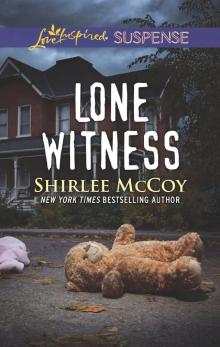 Lone Witness
Lone Witness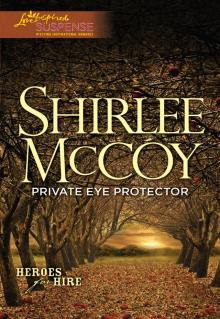 Private Eye Protector
Private Eye Protector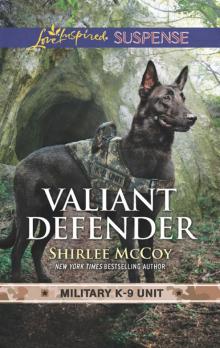 Valiant Defender
Valiant Defender Running Scared
Running Scared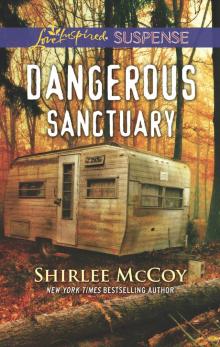 Dangerous Sanctuary
Dangerous Sanctuary Capitol K-9 Unit Christmas: Protecting VirginiaGuarding Abigail
Capitol K-9 Unit Christmas: Protecting VirginiaGuarding Abigail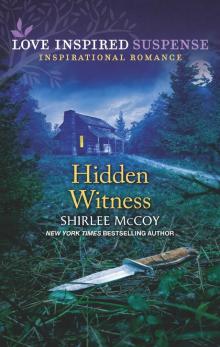 Hidden Witness
Hidden Witness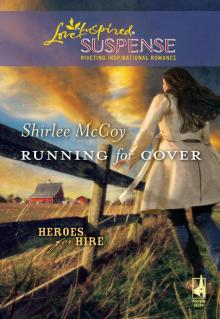 Running for Cover
Running for Cover Gone
Gone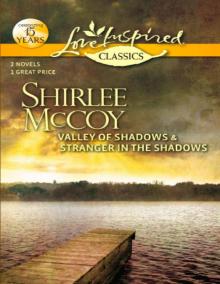 Valley of Shadows and Stranger in the Shadows: Valley of ShadowsStranger in the Shadows
Valley of Shadows and Stranger in the Shadows: Valley of ShadowsStranger in the Shadows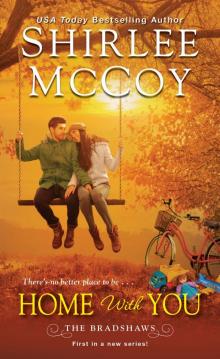 Home with You
Home with You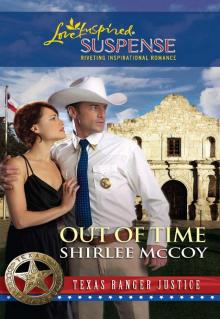 Out of Time
Out of Time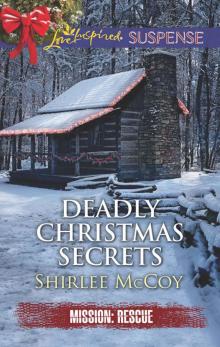 Deadly Christmas Secrets
Deadly Christmas Secrets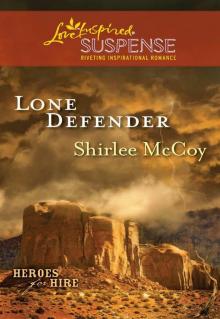 Lone Defender (Love Inspired Suspense)
Lone Defender (Love Inspired Suspense)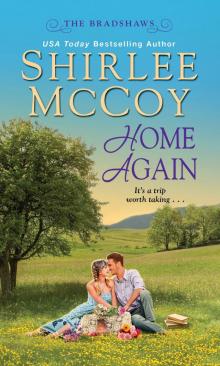 Home Again
Home Again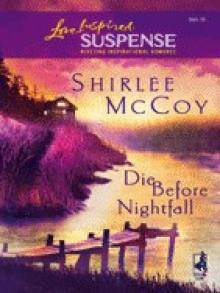 Die Before Nightfall
Die Before Nightfall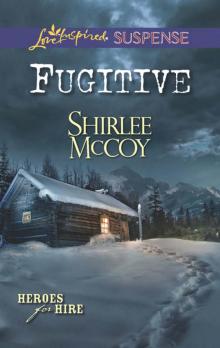 Fugitive
Fugitive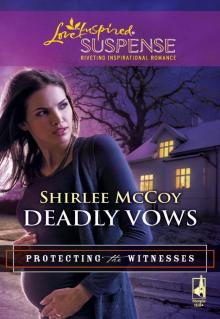 Deadly Vows
Deadly Vows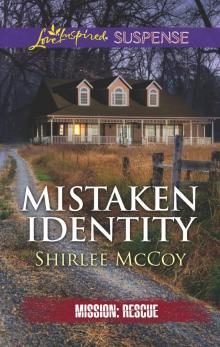 Mistaken Identity
Mistaken Identity Capitol K-9 Unit Christmas
Capitol K-9 Unit Christmas The Christmas Target
The Christmas Target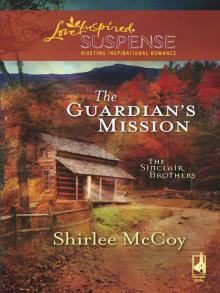 SB01 - The Guardian's Mission
SB01 - The Guardian's Mission Sweet Surprises
Sweet Surprises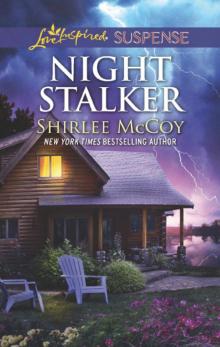 Night Stalker
Night Stalker The Cottage on the Corner
The Cottage on the Corner Love Inspired Suspense January 2014
Love Inspired Suspense January 2014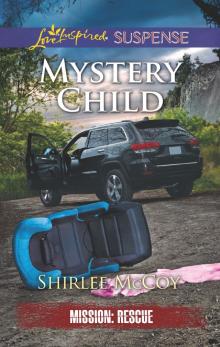 0373447477 (R)
0373447477 (R) Love Inspired Suspense March 2015 - Box Set 1 of 2: Protection DetailHidden AgendaBroken Silence
Love Inspired Suspense March 2015 - Box Set 1 of 2: Protection DetailHidden AgendaBroken Silence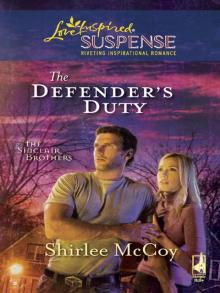 SB03 - The Defender's Duty
SB03 - The Defender's Duty Love Inspired Suspense June 2015 - Box Set 2 of 2: Exit StrategyPaybackCovert Justice
Love Inspired Suspense June 2015 - Box Set 2 of 2: Exit StrategyPaybackCovert Justice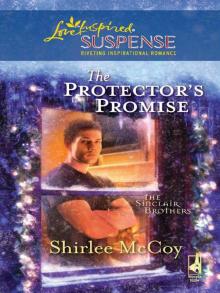 The Protector's Promise (The Sinclair Brothers)
The Protector's Promise (The Sinclair Brothers) Bodyguard
Bodyguard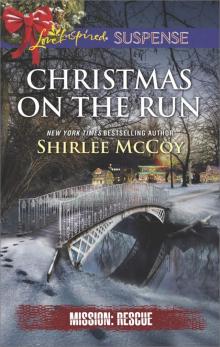 Christmas on the Run
Christmas on the Run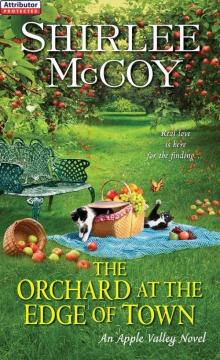 The Orchard at the Edge of Town
The Orchard at the Edge of Town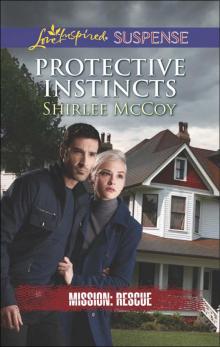 Protective Instincts
Protective Instincts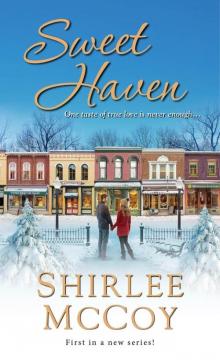 Sweet Haven
Sweet Haven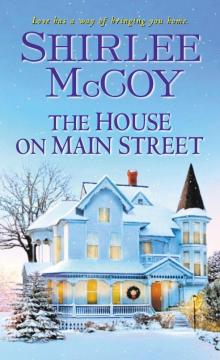 The House on Main Street
The House on Main Street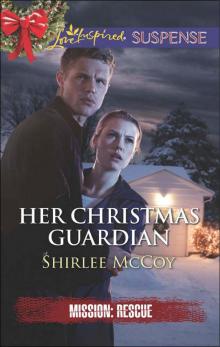 Her Christmas Guardian
Her Christmas Guardian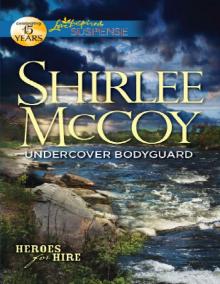 Undercover Bodyguard
Undercover Bodyguard